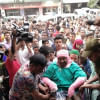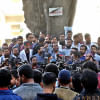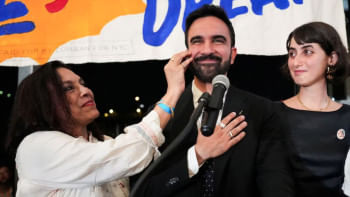Doctors, mob justice and the health sector

The recent assault on doctors at Dhaka Medical College and Hospital (DMCH) marks a deeply troubling moment in our society, highlighting a surge of mob mentality that threatens the sanctity of our most vital institutions. This incident not only demands immediate and unequivocal condemnation but also calls for a broader reflection on the implications of such actions for the future of our healthcare system and societal order.
Medicine is a profession steeped in responsibility, sacrifice, and dedication. The journey to becoming a doctor is arduous, requiring years of intense study, relentless discipline, and an unwavering commitment to the well-being of others. Having a "Dr" before one's name comes with immense expectations—of competence, compassion, resilience, and integrity.
DMCH has been a cornerstone of healthcare in Bangladesh. As one of the oldest and most prestigious medical institutions in the country, it has trained generations of doctors who have gone on to serve both at home and abroad. The hospital itself is a lifeline for thousands of patients daily, offering services that range from emergency care to specialised treatment for complex conditions. Its significance perhaps can never be overstated: it has consistently provided care to the most vulnerable, often under the most challenging conditions.
The doctors at DMCH, many of whom are young and still in the early stages of their careers, are often overwhelmed, working in challenging conditions with limited resources. Despite these challenges, they continue to provide critical care to those who need it most. When such individuals are assaulted, it is akin to an attack on the entire system of care and compassion that they represent.
In a country where healthcare resources are already limited, the erosion of trust between doctors and patients could have catastrophic consequences. When doctors begin to fear for their safety, the quality of care inevitably declines. Fear breeds hesitation, and in medicine, hesitation can be fatal. The psychological toll on healthcare workers—who are already under immense pressure—can lead to burnout, decreased morale, and even a reduction in the number of professionals willing to serve in these high-stress environments. Over time, this could exacerbate the brain drain, with talented doctors choosing to leave the country for safer, more supportive environments abroad. Such a loss would be irreparable, further exacerbating the healthcare challenges we face.
I think that the attack on DMCH doctors is symptomatic of a broader issue plaguing our country: the rise of mob mentality. When individuals or groups take justice into their own hands, they undermine legal institutions and create an environment of fear and uncertainty. This is especially dangerous in the medical field, where decisions must often be made quickly and under immense pressure. The ability of doctors to perform their duties effectively hinges on their confidence that they are protected from unjust retribution. Without this assurance, the very essence of medical practice is compromised.
At the same time, it is also important to understand that the anger and frustration that lead to such incidents do not emerge in a vacuum. They are often rooted in deep-seated grievances, whether real or perceived, about the quality of care, the accessibility of services, or the conduct of medical professionals. While violence is never an acceptable response, these grievances must be acknowledged and addressed through transparent, accountable mechanisms. The interim government has a crucial role to play in this regard. They must ensure that any allegations of medical negligence are investigated thoroughly and impartially, with clear communication to the public about the findings and any subsequent actions. Accountability, grounded in justice and not in vengeance, must be maintained on all sides.
Owing to the instability we are currently experiencing, the interim government must take decisive action. They must ensure the safety of all medical professionals. This is already being done by increasing security at hospitals, particularly in high-risk areas like emergency rooms where tensions often run high. Legal frameworks must be strengthened to deter violence against healthcare workers, with swift and decisive action taken against those who violate these laws. There is also a need for broader public education on the realities of medical practice, including the inherent uncertainties and risks involved in medical treatment.
Furthermore, this incident should prompt a national conversation about the values we hold as a society. The respect we accord to those who dedicate their lives to public service—whether in medicine, education, or other fields—reflects our collective commitment to the common good. When we allow violence to go unchecked, we signal that the rule of law is secondary to the rule of the mob. This is a dangerous path, one that leads not to justice, but to chaos. This is something we are yet to combat as a nation.
We cannot think of the DMCH incident as an isolated event as it is a stark reminder of the dangers of mob mentality and the urgent need to protect our healthcare professionals. The safety and dignity of our doctors are not just their concern; they are the concern of all who depend on them—indeed, the concern of the entire nation.
Maisha Islam Monamee is a student of Institute of Business Administration (IBA) at the University of Dhaka and a contributor at The Daily Star.
Views expressed in this article are the author's own.
Follow The Daily Star Opinion on Facebook for the latest opinions, commentaries and analyses by experts and professionals. To contribute your article or letter to The Daily Star Opinion, see our guidelines for submission.

 For all latest news, follow The Daily Star's Google News channel.
For all latest news, follow The Daily Star's Google News channel. 










Comments